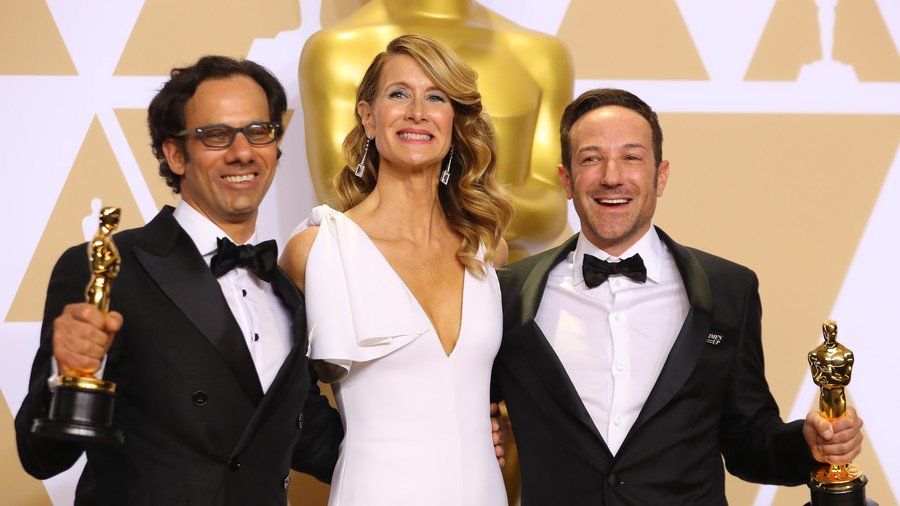'Russian doping'-themed documentary wins Oscar in politicized ceremony

"Icarus," a documentary that credits claims of Russian state-sponsored athletics doping won an Oscar at the highly politicized awards ceremony. It beat another film praising the controversial White Helmets in Syria’s Aleppo.
‘Icarus’ director Bryan Fogel and producer Dan Cogan picked up their statuette at Sunday night’s Academy Awards in Los Angeles. The film sees Fogel solicit the help of fugitive former Russian anti-doping chief Grigory Rodchenkov to win an amateur cycling race using performance-enhancing drugs.
Rodchenkov’s appearance in the film is notable given that he is in hiding under a US witness protection program after making his claims about a "state-sponsored doping program" allegedly active in Russia. According to Rodchenkov, FSB agents used arcane sample-swapping tactics to help Russian athletes cheat at the Sochi 2014 Winter Olympics.
Upon these claims, Canadian lawyer Richard McLaren, working for the World Anti-Doping Agency (WADA) constructed a damning report, which led to Olympic officials banning the entire Russian track and field team from the 2016 summer games in Brazil’s Rio de Janeiro and placing severe limitations on the country’s participation in this year’s winter games in South Korea’s Pyeongchang.
Rodchenko is “a fearless whistleblower who now lives in grave danger,” Fogel claimed, “We hope Icarus is a wake up call, yes about Russia, but in the importance of telling the truth, now more than ever.”
Also nominated for the award was ‘Last Men in Aleppo,’ a film glorifying the activities of the US and British-backed group, the White Helmets, a supposedly virtuous volunteer organization that was plagued by allegations of terrorist connections while the Syrian Army liberated the city from terrorists in 2016.
Producer Kareem Abeed said he was almost prevented from joining Director Feras Fayyad at the awards due to President Donald Trump’s visa ban on several Middle Eastern and African countries, as well as North Korea and Venezuela. “On the last day of February, we got a visa and it really surprised us,” he told the entertainment website Deadline. “Save Ghouta” placards held by filmmakers further politicized the red carpet event.
This isn’t the first time the White Helmets grabbed the Academy spotlight. Last year, Britain’s Orlando von Einsiedel won the best short documentary award with ‘The White Helmets.’
Talk show host Jimmy Kimmel kicked off the ceremony with a partisan speech attacking the Republican party, Trump and Vice-President Mike Pence.
“The stunning Lupita Nyong’o, she was born in Mexico and raised in Kenya,” Kimmel said of the Black Panther star. “Let the tweetstorm from the president's toilet begin!”
“We don’t make films like ‘Call Me By Your Name’ for money,” he said of the gay romance nominated for best picture. “We make them to upset Mike Pence.”
Like this story? Share it with a friend!















